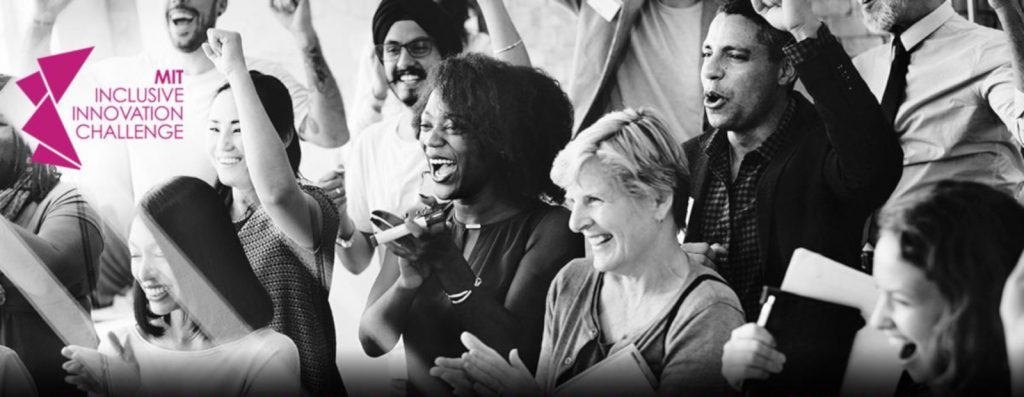We all have them. Those apps we open without thinking. Not because we need anything in particular, but because they feel… safe, in some…
Here are the 2019 MIT Inclusive Innovation Challenge Africa regional finalists

The Massachusetts Institute of Technology (MIT) has selected 12 companies to pitch at the Africa regional finals of its MIT Inclusive Innovation Challenge.
Through the initiative, MIT awards $1.6-million every year to entrepreneurs using tech to create economic opportunities for workers.
The challenge will see 20 regional winners — from North America, Latin America, Europe, Africa and Asia — proceed to MIT for the finals where four global grand prize winners will each win $250 000.
The MIT Inclusive Innovation Challenge will award $250 000 each to four global grand prize winners
Last week, MIT announced that over 500 judges from around the world had selected 60 regional finalists from 1900 submissions in 116 countries.
The 60 finalists will now participate in five regional events where they will pitch for an opportunity to attend the challenge finals in November.
Introducing the 2019 @MIT_IIC Regional Finalists! 60 global orgs representing the best #FOW solutions on the planet will proceed to 5 regional events to pitch LIVE and vie for $1M USD, awarded @MIT on 11/21. https://t.co/Lf8LXMxGP0 #techforall @mit_ide pic.twitter.com/DOtQIe4NWL
— MIT Inclusive Innovation Challenge (@MIT_IIC) July 23, 2019
The 12 Africa regional finalists who will meet in Addis Ababa, Ethiopia on 20 September are:
Bloom Impact (Ghana): Accra-based digital marketplace that provides financial education and access to financial services to small businesses. Bloom Impact was founded in 2017 by CEO Carol Caruso and CTO David Hutchful.
Kumwe Solutions (Rwanda): Kumwe is disrupting the East African maize value chain with a technology-backed model for post-harvest processing and aggregation to increase incomes for 40 000 farmers. The MIT-backed startup — which is comprised of three divisions Kumwe Freight, Kumwe Labs and Kumwe Harvest — was founded in 2016 by CEO Cyril Khamsi.
Forasna.com (Egypt): A platform that connects low-skilled and blue-collar workers with matching job opportunities in Egypt.
Flare (Kenya): Flare provides software infrastructure and operational support for emergency response teams, both government and private.
Social Lender (Nigeria): Social Lender bridges the gap of immediate fund access for people with limited access to formal credit by harnessing a proprietary algorithm using social reputation on mobile, online, and social media platforms. The fintech startup was founded in 2014 by Faith Adesemowo.
Indlu (South Africa): The Indlu app enables African landowners to manage their backyard rental rooms and build credit scores, providing a pathway to capital access. The application was launched in 2017 by Johannesburg-based Melana Developments.
Taskty (Egypt): Taskty is an online marketplace for home services like plumbing, household cleaning, carpentry and gardening.
Farmerline (Ghana): Farmerline provides smallholder farmers with access to necessary market information, inputs and resources that helps them increase productivity. The agritech startup was founded in 2013 by CEO Alloysius Attah and CTO Emmanual Owusu Addai.
Inclusivity Solutions (South Africa): Inclusivity Solutions designs, builds and operates inclusive digital insurance solutions. The insurtech startup also partners with mobile operators, insurance companies and other distribution partners to deliver insurance solutions through digital channels. Inclusivity Solutions was founded in 2015 by CEO Jeremy Leach.
Tiny Totos (Kenya): This social enterprise aims to improve Nairobi’s informal childcare market. Tiny Totos does this through partnerships with private and informal daycare entrepreneurs and by delivering training and investment designed to upgrade standards.
Shortlist (East Africa): Mumbai-based Shortlist helps job-seekers in Africa and India to apply for jobs online by demonstrating their skills and abilities in real time, regardless of their background.
Shopit (South Africa): Shopit digitises informal grocery stores in low-income communities and links them to the formal economy to create local business opportunities and positive social impact.
Featured image: MIT Inclusive Innovation Challenge via Twitter

